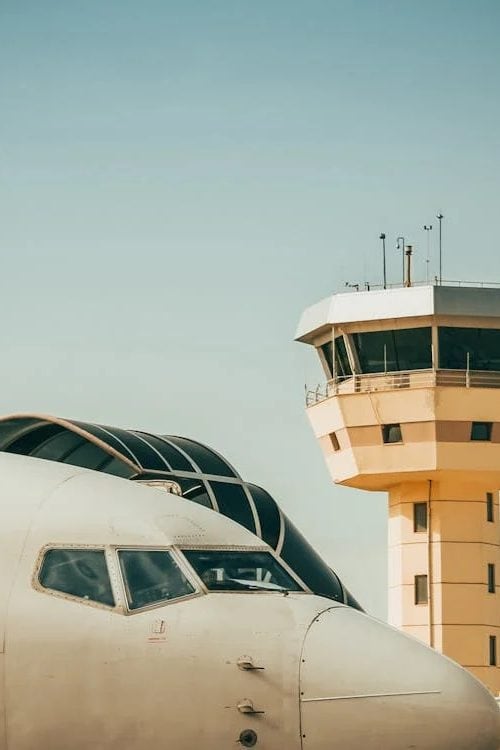Aviation is a key industry where AI will inevitably improve efficiency and increase competition. Any airlines or airports reluctant to embrace cutting-edge AI capabilities will be left behind.
Enhancing Efficiency But Not Taking Over
In a sector as complex and logistically demanding as aviation, efficiency is paramount. Any lapses in efficiency will compound and may cause significant consequences further down the line.
Thankfully, AI systems are great for efficiency as they are able to analyse vast amounts of data in minimal time. These systems can then calculate anything from flight paths and fuel consumption to crew scheduling and gate assignments. For example, AI algorithms are used to calculate the most efficient route in real time while taking into account factors such as weather conditions and changing air traffic situations. This reduces both the quantity and extent of delays which saves fuel.
However, it is also important to avoid becoming too reliant on AI systems. If airports and airlines place too much emphasis on AI and there are any glitches, bugs, or errors, delays could begin to overlap and compound, making the situation impossible to solve. The right balance must be made, one where AI is used to enhance existing aviation logistics, as opposed to taking over the whole process.
Transforming Maintenance with Predictive Analytics
Because aeroplanes are such complicated vehicles and because they are used so frequently, their maintenance is a crucial task for any airline. Traditionally, aircraft maintenance has relied on scheduled or reactive approaches, which could be inefficient and could lead to longer downtimes if carried out improperly.
AI changes this not only by assisting in maintenance checks themselves but, more importantly, by continuously monitoring the health of the aircraft using sensors and data analytics to predict when maintenance should be performed. This predictive maintenance approach minimises unexpected breakdowns, improves maintenance schedules, and extends the lifespan of aircraft components.
This applies not only to planes but also to ground operations vehicles and anything else that might require maintenance, from conveyor belts and trolleys to refuelling vehicles and terminal buses.
Baggage Handling: From Planning to Execution
Issues with baggage handling are one-way tickets to poor customer experiences and decreased customer trust. AI can help both in planning and executing baggage handling.
In terms of planning, AI poses the opportunity to have all the necessary ground handling equipment in the right place at the right time for each individual flight. Not to mention that AI-driven tracking systems provide passengers with real-time updates on their baggage status, putting customers at ease.
As for the execution of baggage handling, advanced image recognition systems and Automated Guided Vehicles (AGVs) are deployed to handle baggage more efficiently, reducing the chances of luggage mishandling and improving turnaround times. With decreased human error, luggage will arrive in less time and with less chance of any mishaps occurring.
Safety, Security, and Flight Simulations: Reducing Risks
When it comes to aviation logistics, safety is always non-negotiable and AI is currently being used to enhance safety protocols in multiple ways. For example, AI-powered systems continuously analyse flight data to identify potential safety issues before they become hazardous during a flight. These systems can also simulate various scenarios and predict outcomes, helping in strategic planning and training so that crew are better prepared in dangerous situations.
AI improves security measures as well. At security checkpoints, AI-driven systems can quickly process images from X-ray machines to detect prohibited items more accurately than human operators. This capability not only speeds up the screening process but also boosts its effectiveness, helping airports and customers alike.
Enhancing the Overall Customer Experience
It is in the best interest of airlines and airports to keep customers firmly in mind when deciding when and where to utilise AI. For example, there are some key ways that AI can be used to improve customer experience and satisfaction, in some cases before they have even arrived at an airport:
- Efficient Check-Ins and Boarding: AI-powered systems streamline check-in and boarding processes by reducing waiting times. For instance, biometric systems using facial recognition can speed up identity verification, allowing for faster security checks and boarding.
- Personalised Travel Planning: AI algorithms analyse travel patterns, weather, and individual preferences to offer personalised flight options and travel packages. This helps provide tailored travel experiences, improving satisfaction and engagement.
- Dynamic Pricing: AI algorithms analyse multiple factors to adjust flight prices dynamically. This can benefit customers by offering them more competitive pricing based on timing, demand, and personal buying patterns.
- AI Chat Bots: In terms of customer service, this technology is revolutionary as it allows airlines to provide immediate 24/7 service regardless of location. It also allows airlines to handle greater volumes of customer queries and conversations, enabling more time for significant issues.
These are just some of the ways AI is changing customer experience for the better, offering unique ways to increase brand trust and customer satisfaction.
CONTACT OUR TEAM TODAY
AI’s impact on aviation logistics is transformative, offering unprecedented improvements in operational efficiency, safety, customer service, and decision-making. As the industry continues to embrace AI, it must also address the accompanying challenges, including cybersecurity, data privacy, and workforce transitions.
Experience cutting-edge excellence here at Flightworx. Discover how our cutting-edge flight logistics and aviation management solutions are transforming the industry to provide customer service. From security and ground handling to flight planning and passenger airline support, we have the answer for any challenge. Get in touch to discuss your logistics and management needs today.
Aviation News
Aviation Guides
- What is Sustainable Aviation Fuel?
- A Short Guide to FBO’s – the Dos and Dont’s
- Current Risks to Aviation
- How Air Cargo is Revolutionising the Global Economy
- The Cost To Operate A Private Jet
- Infrastructure For Sustainable Aviation Fuel
- Why There Is A Need To Improve Aviation Industry
- Emergency Flight Charter
- Diplomatic Flight Operations




